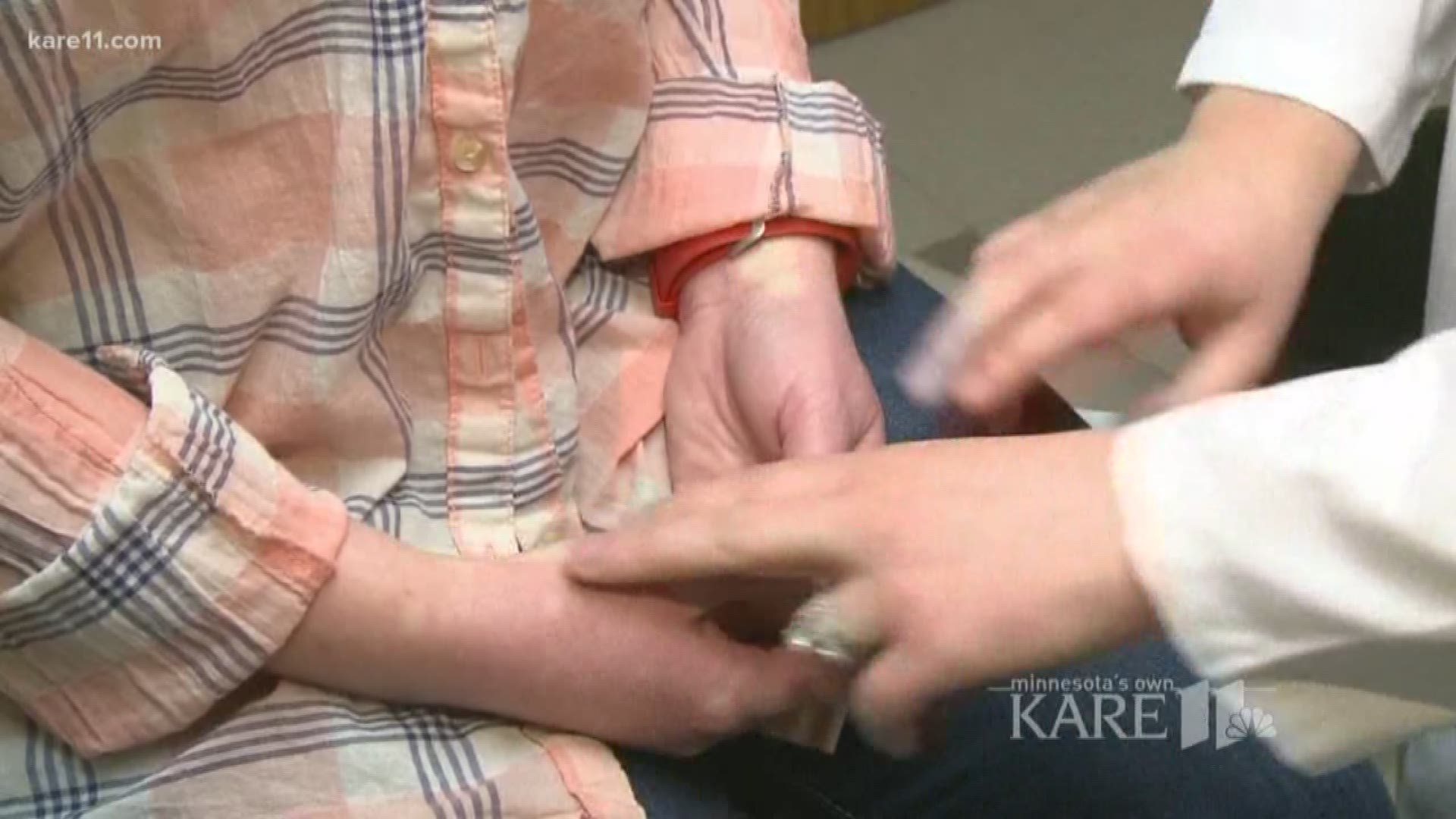ST. PAUL, Minn. -- Insurance premiums on the individual market continue to be extremely high, for a variety of reasons, and in parts of Greater Minnesota the choices for plans are extremely limited.
It's one of the reasons Governor Dayton and others have suggested allowing farmers and other people who currently earn too much to qualify the Minnesota Care health program to buy into it. Their premiums would be higher that it is for currently enrolled in that program, but that would, in theory, make it more sustainable.
"Currently our premiums, with deductible, are $33,000 per year. That financial burden is crushing us," Brian Romsdahl, told reporters at the Capitol Tuesday.
Romsdahl and his wife Therese grow corn and soybeans and raise cattle on a farm near Butterfield, in southern Minnesota. They've been rocked with falling crop prices at the same time health insurance premiums have soared, forcing them to cut into the equity of their farm.
Therese Romsdahl said some of their neighboring farmers have dropped insurance, and are hoping for the best. But she said they're trying to keep coverage because Brian has diabetes.
Gov. Dayton said it was very upsetting to see Republicans add a provision to a larger piece of legislation that would bar the state from opening up Minnesota Care to a larger group of potential customers.
The future of Minnesota Care is questionable, because it's subsidized by a tax on medical providers, and that tax is scheduled to end Dec. 31, 2019. Republicans have said they won't consider Gov. Dayton's proposal to extend the provider tax an extra six months.
They refer to it as a "sick tax" because providers pass the cost along to patients and their insurance companies. Private insurers are also opposed the the Minnesota Care buy-in, because it would shrink the pool of customers in the individual market. And that, in turn, would lead to higher premiums.
Among those appearing with the governor Tuesday, to make the case for better access to coverage, was Dr. Glenn Nemec of Monticello, who also serves as president of the Minnesota Academy of Family Physicians.
"The program has to be done correctly. It needs to reimburse the doctors enough in these rural areas to stay in business," Dr. Nemec explained. "A lot of rural practices are hanging on a financial thread."
He said physician lose money on Medicaid patients, because of low reimbursements.
"Medicaid reimbursement does not even pay overhead. Medicare reimbursement, which this plan is going to be based on, at least allows us to keep our doors open."
But lower reimbursement rates from publicly-subsidized health plans is a huge issue for opponents of the Minnesota Care buy-in proposal. Rep. Matt Dean, who heads the House Health Finance Committee, said the plan isn't sustainable.
"If we take a program designed for people of low income, and we make it available to rich people and subsidize it, and cut reimbursement rates, that's a bad idea."
He said rural health providers will shut their doors if they're forced to take on more patients from government-subsidized plans.
"The public option is just another step backwards into 2009," Dean said, referring to the year Congress passed the Affordable Care Act.
"We should really be focusing on the things we can to continue to strengthen the individual insurance market and trying to find plans that are affordable to these people."
Minnesota Farmer's Union President Gary Wertish said health care access was the number one issue farmers raised in a series of Rural Voices listening sessions the Farmers Union held across the state. And the Minnesota Care buy-in option appeals to many in Greater Minnesota.
"Will it fix all our problems with health care? Will it fix all our costs to the health care system?" Wertish remarked.
"No. But it will help some people. What's wrong with trying to help some people?"
In the long run taxpayers, insurers and their customers will foot the bill for treating uninsured and under insured people.
Dr. Nemec says she sees a lot of patients who are either uninsured, or have such high deductibles they hesitate to seek medical help.
"When they don’t come in, we don’t have a chance to pick up problems when they’re easy and inexpensive to take care of," Nemec said.

